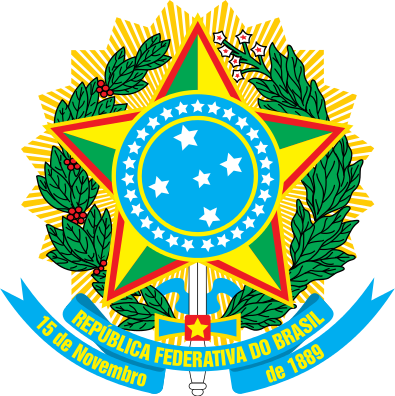Location
Following more than three centuries under Portuguese rule, Brazil gained its independence in 1822, maintaining a monarchical system of government until the abolition of slavery in 1888 and the subsequent proclamation of a republic by the military in 1889. Brazilian coffee exporters politically dominated the country until populist leader Getulio VARGAS rose to power in 1930. By far the largest and most populous country in South America, Brazil underwent more than a half century of populist and military government until 1985, when the military regime peacefully ceded power to civilian rulers. Brazil continues to pursue industrial and agricultural growth and development of its interior. Having successfully weathered a period of global financial difficulty in the late 20th century, Brazil was seen as one of the world’s strongest emerging markets and a contributor to global growth. The awarding of the 2014 FIFA World Cup and 2016 Summer Olympic Games, the first ever to be held in South America, was seen as symbolic of the country’s rise. However, since about 2013, Brazil has been plagued by a shrinking economy, growing unemployment, and rising inflation. Political scandal resulted in the impeachment of President Dilma ROUSSEFF in May 2016, a conviction that was upheld by the Senate in August 2016; her vice president, Michel TEMER, will serve as president until 2018, completing her second term.
Brazil is a federal presidential republic.
Source: CIA World Factbook
Members:
Resources
Displaying 81 - 85 of 180Decree No. 1.775 of 8 January 1996 ruling on the administrative procedures for zoning native people’s land.
This Decree, composed of 11 articles, rules on the administrative procedures for zoning native people’s land. The Decree establishes that such function shall be implemented by the federal body in charge for native people assistance. Native people groups shall participate during all stages of the process.
Decree of 27 October 2004 on native people administrative borders in the land Torá, Amazones State.
This Decree, composed of 2 articles, establishes the administrative borders of native people’s Torá and Apurinã groups, located in Torá land, in the Municipalities of Humaitá and Manicoré, Amazones State. This administrative zoning has been promoted by the National Indio Fountation, FUNAI, in compliance with Act No. 6.001 establishing native people Statute.
Implements: Act No. 6.001 establishing the native people Statute. (1973-12-19)
Implements: Decree No. 1.775 of 8 January 1996 ruling on the administrative procedures for zoning native people’s land. (1996-01-08)
Decree of 18 November 2004 declaring of social interest, for the purposes of the agrarian reform, some properties in Minas Gerais State.
This Decree, composed of 4 articles, declares of social interest, for the purposes of the agrarian reform, the following rural properties in Minas Gerais State: “Fazenda Rio do Peixe", in the Municipality of Veríssimo; "Fazenda Grota do Escuro", in the Municipality of Juvenília; "Fazenda Sidamar", in the Municipality of Prata. The Decree establishes the competence of the National Institute for the Agriculture Reform (INCRA) to promote and supervise the expropriation of the aforementioned rural lands.
Decree of 27 October 2004 on native people administrative borders in the land Rio Urubu, Amazones State.
This Decree, composed of 2 articles, establishes the administrative borders of native people’s Mura group, located in Rio Urubu land, in the Municipality of Itacoatiara, Amazones State. This administrative zoning has been promoted by the National Indio Fountation, FUNAI, in compliance with Act No. 6.001 establishing native people Statute.
Implements: Act No. 6.001 establishing the native people Statute. (1973-12-19)
Implements: Decree No. 1.775 of 8 January 1996 ruling on the administrative procedures for zoning native people’s land. (1996-01-08)
Decree of 1 December 2004 declaring of social interest, for the purposes of the agrarian reform, some properties in the States of Alagoas Bahia, Ceará, Pará, Pernambuco, and Piauí.
This Decree, composed of 4 articles, declares of social interest, for the purposes of the agrarian reform, the following rural properties: "Fazenda São Pedro", in the Municipality of Atalaia, Alagoas State; "Fazenda São Mateus", in the Municipalities of Araças and Itanagra, Bahia State; "Fazenda Santa Clara", in the Municipalities of Guaiúba and Itaitinga, Ceará State; "Fazenda Ribeirão das Pedras", in the Municipalities of Pacajá and Novo Repartimento, Pará State; "Fazenda Santa Izabel", Pernambuco State; "Malhada dos Cavalos", in the Municipality of Tacaimbó, Pernambuco State; "Fazenda Ju


